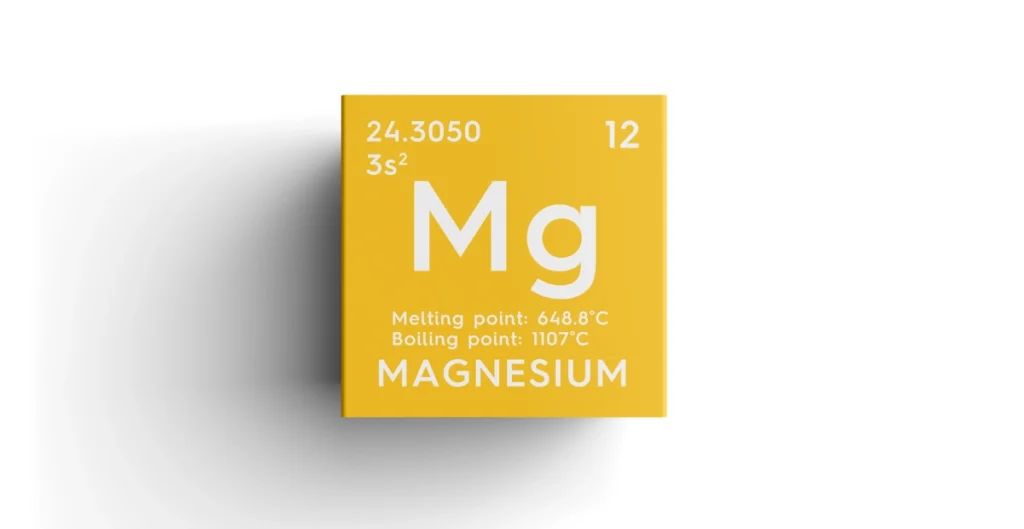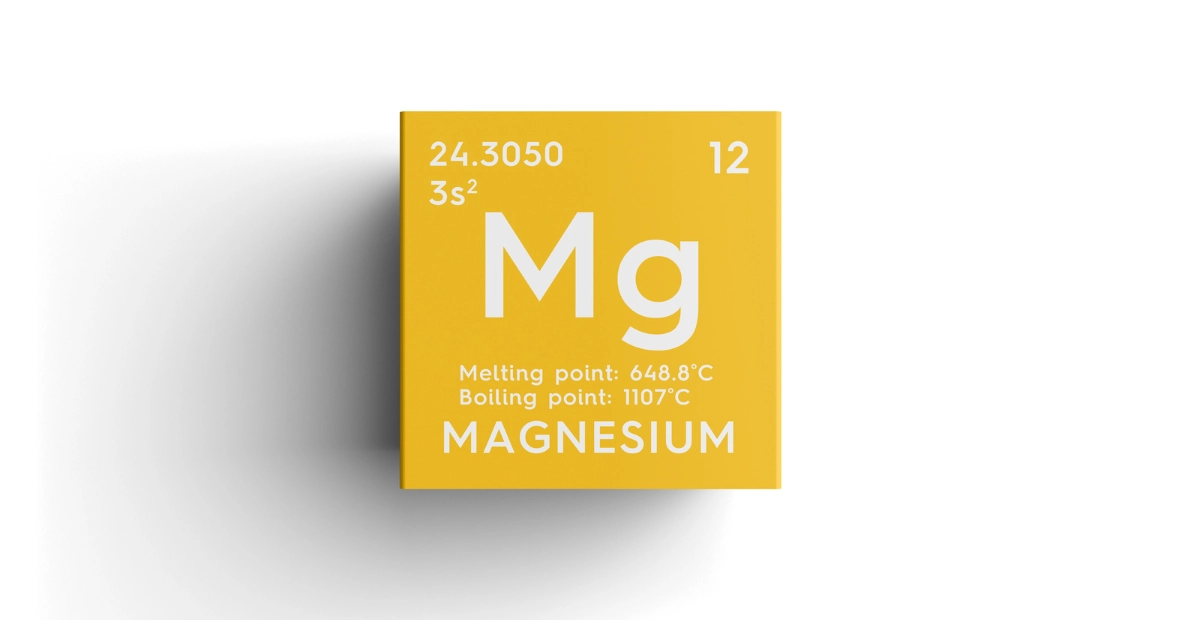Magnesium Glycinate Benefits: Comprehensive Guide to Health
-
By: Nutra Guru
-
October 11, 2024
Magnesium Glycinate Benefits: A Complete Guide to Better Health

Magnesium is an essential mineral that plays a crucial role in your overall health. It supports over 300 biochemical reactions in your body, from muscle function to heart health and nerve regulation. But not all magnesium supplements are created equal. Among the various forms, magnesium glycinate stands out for its superior absorption and minimal side effects.
This guide explores the health benefits of magnesium glycinate, why it’s the best form for supplementation, and how it can improve your sleep, reduce anxiety, and support your overall well-being.
What Is Magnesium Glycinate?
Magnesium glycinate is a chelated form of magnesium, meaning the magnesium is bound to the amino acid glycine. Chelation improves the bioavailability of magnesium, making it easier for your body to absorb compared to other forms like magnesium oxide or citrate.
Because of its excellent absorption, magnesium glycinate is often recommended for people with magnesium deficiencies, sleep issues, or anxiety.
Key Health Benefits of Magnesium Glycinate
Magnesium for Sleep
Magnesium is essential for regulating neurotransmitters that calm the nervous system. Research shows that magnesium glycinate can help improve sleep quality by enhancing GABA (gamma-aminobutyric acid) activity, which promotes relaxation and reduces nerve excitability. A study published in the Journal of Research in Medical Sciences found that magnesium supplementation improved sleep duration and quality in adults suffering from insomnia .
Magnesium also regulates melatonin, the hormone responsible for your sleep-wake cycle. By supplementing with magnesium glycinate, you may find it easier to fall asleep and stay asleep throughout the night.
Case Study: In a clinical trial, older adults with insomnia were given magnesium supplements over an 8-week period. The study found a significant improvement in both sleep duration and quality among those who took magnesium compared to a placebo group .
•Statistic: According to a survey, about 50-70 million adults in the U.S. have a sleep disorder, with magnesium deficiency often linked to insomnia.
Reducing Anxiety and Stress
Magnesium is known for its calming effect on the nervous system. It works by regulating the release of stress hormones like cortisol and adrenaline. Magnesium glycinate, in particular, has been shown to reduce symptoms of anxiety and stress. A study published in Nutrients revealed that individuals with anxiety had lower levels of magnesium, and supplementation significantly improved their mood and reduced stress .
Glycine, the amino acid in magnesium glycinate, also has calming properties. When combined with magnesium, it can promote relaxation and reduce feelings of anxiety.
Case Study: In a study on patients with generalized anxiety disorder (GAD), magnesium supplementation helped reduce anxiety levels by 31% over a 6-week period .
Supporting Heart and Bone Health
Magnesium is vital for maintaining a healthy heart. It helps regulate blood pressure and prevents arrhythmias by supporting the proper functioning of heart muscles. Research shows that magnesium deficiency is linked to an increased risk of cardiovascular disease, high blood pressure, and stroke .
Magnesium is also essential for bone health. About 60% of the magnesium in your body is stored in your bones. It helps regulate calcium levels, which is crucial for maintaining bone density and preventing osteoporosis. Magnesium glycinate’s superior absorption makes it an ideal choice for supporting bone health, especially in older adults.
•Statistic: Studies show that low magnesium levels can increase the risk of heart disease by 30%, making supplementation essential for those with magnesium deficiencies.
Magnesium Glycinate Absorption and Dosage
Why Magnesium Glycinate Is Best for Absorption
One of the key benefits of magnesium glycinate is its superior bioavailability. Chelated magnesium is absorbed more effectively by the intestines, meaning your body can utilize it more efficiently. In comparison, forms like magnesium oxide and citrate often lead to digestive issues like diarrhea and have lower absorption rates.
Studies comparing different types of magnesium supplements consistently show that magnesium glycinate is among the best for absorption with minimal side effects. It’s especially useful for people who have trouble absorbing magnesium from other forms due to gastrointestinal conditions or other health issues .
Example: A study published in Magnesium Research found that magnesium glycinate had a higher absorption rate compared to magnesium oxide and magnesium sulfate .
Proper Magnesium Glycinate Dosage
The recommended daily dosage of magnesium glycinate depends on your age, gender, and specific health conditions. For most adults, the optimal daily dose is between 200-400 mg. However, individuals with magnesium deficiencies or specific health concerns like anxiety or insomnia may benefit from higher doses, under medical supervision.
For better absorption and fewer side effects, it’s best to split your daily magnesium glycinate dose into two smaller doses—one in the morning and one in the evening. This method helps your body absorb more magnesium throughout the day without overwhelming the digestive system.
•Example: A person experiencing sleep issues might take 200 mg in the evening to promote relaxation and improve sleep quality.
Common Side Effects and Considerations
Side Effects of Magnesium Glycinate
Magnesium glycinate is generally well-tolerated, even in higher doses, thanks to its chelated form. However, like all supplements, it can cause side effects in some individuals, particularly at high doses. Common side effects include:
•Diarrhea
•Nausea
•Stomach cramping
To avoid these side effects, it’s important to stick to the recommended dosage and consult with a healthcare provider before significantly increasing your intake.
Magnesium Deficiency Signs
Magnesium deficiency is more common than most people realize. Symptoms of low magnesium levels include:
•Fatigue
•Muscle cramps
•Weakness
•Numbness or tingling
If you experience any of these symptoms, it may be worth getting your magnesium levels tested and considering magnesium glycinate supplementation.
Case Study: A study published in BMC Medicine found that magnesium deficiency significantly increased the risk of developing type 2 diabetes in otherwise healthy adults .
Frequently Asked Questions
What is the best time to take magnesium glycinate?
Magnesium glycinate can be taken any time of day, but for sleep benefits, it’s best taken in the evening. Splitting your dosage between morning and night can help improve absorption and prevent digestive issues.
Is magnesium glycinate better for sleep than other magnesium types?
Yes, magnesium glycinate is particularly effective for sleep due to its calming effect on the nervous system and its high bioavailability, which ensures more of the magnesium is absorbed.
How long does it take to feel the effects of magnesium glycinate?
Most people begin to notice the benefits of magnesium glycinate within a week or two of consistent use. For sleep and anxiety relief, improvements may be felt sooner.
Can you take magnesium glycinate every day?
Yes, magnesium glycinate is safe for daily use as long as you stick to the recommended dosage. Always consult with your healthcare provider, especially if you have underlying health conditions.
What’s the difference between magnesium glycinate and magnesium citrate?
Magnesium glycinate is better absorbed and gentler on the stomach, making it ideal for long-term supplementation. Magnesium citrate, while effective, can cause digestive issues like diarrhea and has a lower absorption rate.
Conclusion
Magnesium glycinate is a highly effective and well-tolerated supplement that can improve sleep, reduce anxiety, and support heart and bone health. Its superior absorption makes it the ideal choice for people looking to increase their magnesium intake without experiencing digestive discomfort. Whether you’re struggling with sleep or aiming to support your overall health, magnesium glycinate is a simple and effective addition to your daily routine.
For best results, stick to the recommended dosage and consult with a healthcare professional if you have any concerns about deficiency or side effects. With consistent use, magnesium glycinate can help you feel more relaxed, sleep better, and maintain optimal health.
External Links
1.Magnesium and Sleep
https://www.ncbi.nlm.nih.gov/pmc/articles/PMC5452159/
2.Magnesium Deficiency Data
https://ods.od.nih.gov/factsheets/Magnesium-HealthProfessional/
3.Anxiety and Magnesium Supplementation
https://pubmed.ncbi.nlm.nih.gov/26079207/





